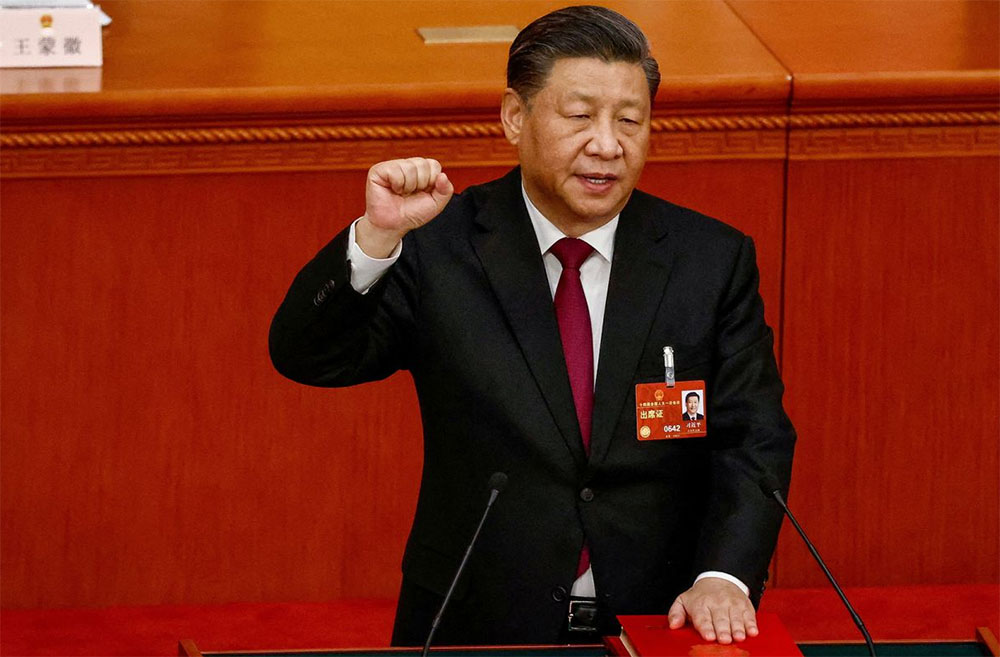
Photo Credit: Getty Images
In a strategic shift that has sent ripples through the financial world, China has significantly reduced its holdings of US Treasuries, selling off approximately $48.9 billion in the first quarter of 2024. This move, as reported by the US Treasury Department, marks a decrease from $816.3 billion in December of the previous year to $767.4 billion in March.
Analysts, including Bloomberg Intelligence’s Stephen Chiu, interpret this as a clear signal of China’s intention to diversify away from US dollar holdings. The implications of such a divestment are profound, potentially affecting currency valuations, trade relations, and global economic dynamics.
The sale of US Treasuries by China could lead to a stronger Yuan and a weaker dollar, impacting the competitiveness of Chinese exports. This could have a domino effect on China’s economic growth and employment rates. Moreover, the move comes amid escalating trade tensions between the US and China, with the Biden administration imposing punitive tariffs on a range of Chinese imports, and former President Trump threatening even more severe measures if re-elected.
The potential trade war looms large, with former International Monetary Fund (IMF) deputy director Desmond Lachman warning of its inflationary consequences for the US. As Chinese companies face higher costs due to increased tariffs, they may pass these on to consumers, exacerbating the inflationary pressures already resistant to the Federal Reserve’s interest rate hikes.
The Federal Reserve, already grappling with stubborn inflation, may find its efforts further hampered by a trade war. The anticipated rate-cut cycle could be delayed, depriving the US economy of a much-needed stimulus. The trade tensions also threaten to disrupt the delicate balance of international trade, with other nations possibly stepping in to fill the void left by a US-China trade rift.
As the world’s two largest economies lock horns, the stakes are high. The outcome of this financial tug-of-war will not only shape the future of US-China relations but also have far-reaching consequences for the global economy. With both nations standing firm on their trade policies, the world watches with bated breath, hoping for a resolution that avoids a full-scale economic confrontation.
China’s recent treasury sell-off is more than a mere portfolio adjustment; it’s a strategic maneuver with the potential to alter the landscape of international finance and trade. As policymakers and market watchers analyze every move, the question remains: will this lead to a recalibration of global economic power, or will it spark a trade war with dire global consequences? The answer lies in the hands of the world’s two economic superpowers, whose decisions will reverberate across continents and industries.
















